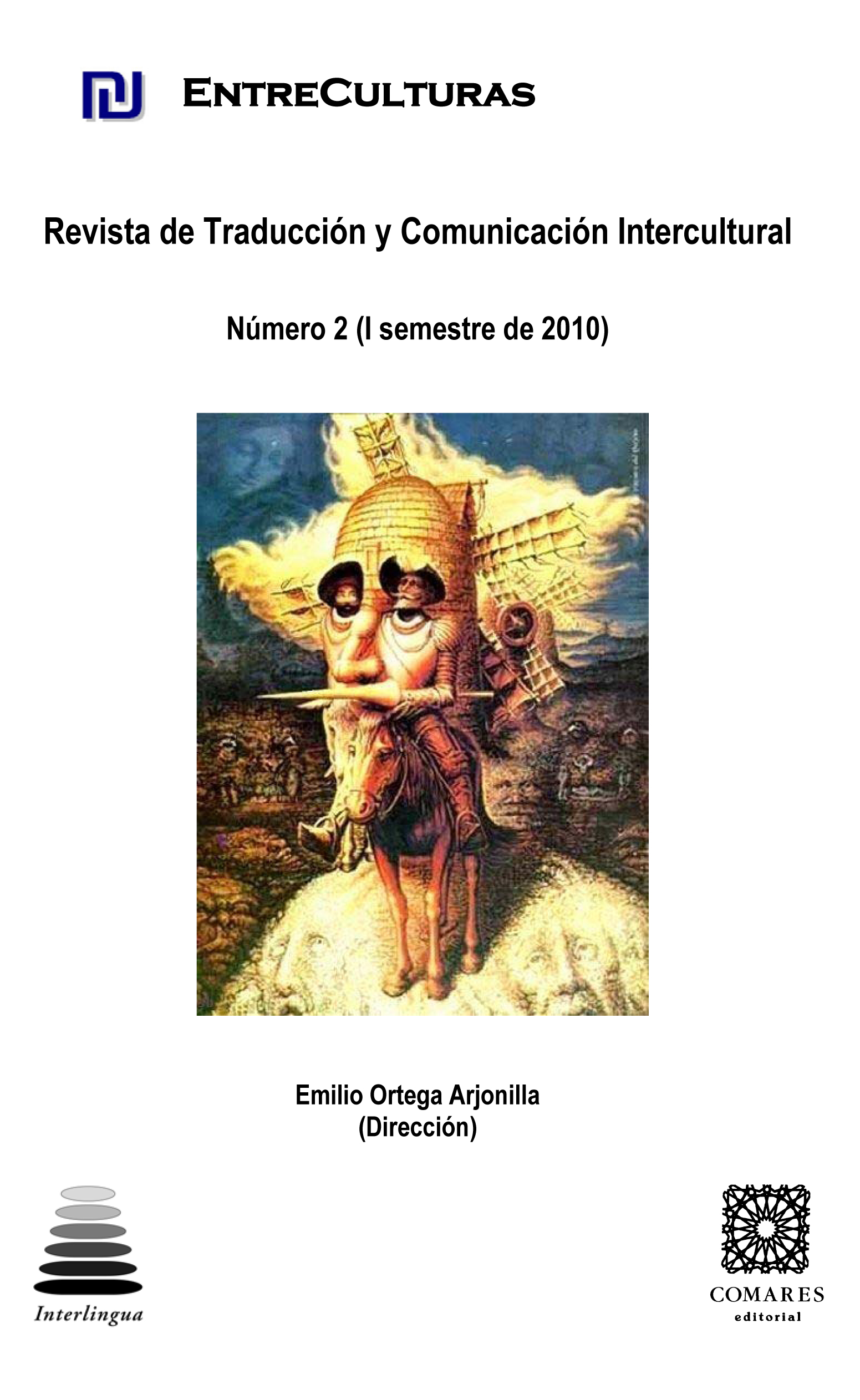EL GRUPO DE DISCUSIÓN COMO TÉCNICA DE INVESTIGACIÓN EN LA FORMACIÓN DE TRADUCTORES: DOS CASOS DE SU APLICABILIDAD
DOI:
https://doi.org/10.24310/Entreculturasertci.vi2.11766Keywords:
qualitative research, focus groups, translator training, applicabilityAbstract
The qualitative research technique known as focus or discussion group is especially adequate for gathering information on the opinions, beliefs, perceptions, interests and attitudes of a group of individuals involved in a given object of study. In this article, we firstly focus on the main methodological issues which all studies based on focus groups must follow, depicting both characteristics and design phases. In the following, we describe two practical cases which have successfully applied focus groups for obtaining valuable data on two different objects of study dealing with translator training assessment. Thus we reveal the suitability and validity of this technique in this type of research projects.
Downloads
Metrics
References
BORJA, A., GARCÍA I. Y MONTALT, V. (2009): “Research methodology in Specialized Genres for Translation Studies”. The Interpreter and Translator Trainer, 3/1, 57-77.
CALLEJO, J. (2001): El grupo de discusión: introducción a una práctica de investigación, Barcelona, Ariel. “Declaración conjunta de los Ministros Europeos de Educación reunidos en Bolonia el 19 de junio de 1999” [en línea] http://www.ciccp.es/ImgWeb/Sede%20Nacional/Declaraciones%20Bolonia_Ber/
Declaraci%C3%B3n%20de%20Bolonia.pdf. [consulta: 20 de julio de 2009].
GARCÍA IZQUIERDO, I. (2009): Divulgación médica y traducción: El género Información para pacientes. Berna, Peter Lang.
GIBBS, G. (1994 A): Learning in Teams – A student Guide. Oxford Brookes University: Oxford Centre for Staff.
GIBBS, G. (1994 B): Learning in Teams – A student Manual. Oxford Brookes University: Oxford Centre for Staff.
HUERTAS BARROS, E. (EN PROCESO): Métodos y enfoques de enseñanza en el aula de traducción en la primera etapa de formación en las facultades de Traducción e Interpretación en España. Universidad de Granada: Tesis doctoral.
KELLY, D. (2005): A Handbook for Translator Trainers: a Guide to Reflective Practice. Manchester, St. Jerome.
KRUEGER, R. A. (1991): El grupo de discusión: guía practica para la investigación aplicada. Madrid, Pirámide.
MARTÍNEZ MELIS, N. Y HURTADO ALBIR, A. (2001): “Assessment in Translation Studies: Research Needs”, Meta, XLVI/2, pp. 272-287. También disponible en www.erudit.org/revue/meta/2001/v46/n2/ 003624ar.pdf. [consulta: 13 de agosto de 2009].
MAYORGA FERNÁNDEZ, Mª. J. Y TÓJAR HURTADO, J. C. (2004): “El grupo de discusión como técnica de recogida de información en la evaluación de la docencia universitaria”, Revista Fuentes, 5, 143-157. También disponible en http://www.revistafuentes.es/gestor/apartados_revista/pdf/numeros_anteriores/kndfwsak.pdf. [consulta: 13 de agosto de 2009].
PÉREZ JUSTE, R. (2006): Evaluación de programas educativos. Madrid: La Muralla.
SALES, D. (2008): “Toward a student-centred approach to information literacy learning: A focus group study on the information behaviour of translation and interpreting students”, Journal of Information Literacy, 2/1. También disponible en http://jil.lboro.ac.uk/ojs/index.php/JIL/article/view/RAV2-I1-2008-3. [consulta: 13 de agosto de 2009].
SUÁREZ ORTEGA, M. (2005): El grupo de discusión: una herramienta para la investigación cualitativa. Barcelona, Laertes.
VIGIER MORENO, F. J. (2009): “La profesión de Intérprete Jurado en la actualidad y el acceso mediante acreditación académica: estudio de la formación específica impartida en los centros universitarios españoles”. Interlinguistica, 18, 1134-1143.
VIGIER MORENO, F. J. (EN PROCESO): El nombramiento de licenciados en Traducción e Interpretación como intérpretes jurados mediante acreditación académica: descripción de la formación recibida y grado de satisfacción de los egresados. Universidad de Granada: Tesis doctoral.
Downloads
Published
How to Cite
Issue
Section
License
All contents published in Entre culturas. Revista de traducción y comunicación intercultural are protected under the Creative Commons Attribution-NonCommercial-ShareAlike 4.0 International (CC BY-NC-SA 4.0) license. All about this license is available in the following link: <http://creativecommons.org/licenses/by-nc-sa/4.0>
Users can copy, use, redistribute, share and exhibit publicly as long as:
- The original source and authorship of the material are cited (Journal, Publisher and URL of the work).
- It is not used for comercial purposes.
- The existence of the license and its especifications are mentioned.
There are two sets of authors’ rights: moral and property rights. Moral rights are perpetual prerogatives, unrenounceable, not-transferable, unalienable, imprescriptible and inembargable. According to authors’ rights legislation, Entreculturas. Revista de traducción y comunicación intercultural recognizes and respects authors moral rights, as well as the ownership of property rights, which will be transferred to University of Malaga in open access. The property rights are referred to the benefits that are gained by the use or the dissemination of works. Entreculturas. Revista de traducción y comunicación intercultural is published in an open access form and it is exclusively licenced by any means for doing or authorising distribution, dissemination, reproduction, , adaptation, translation or arrangement of works.
Authors are responsable for obtaining the necessary permission to use copyrighted images.





7.png)
